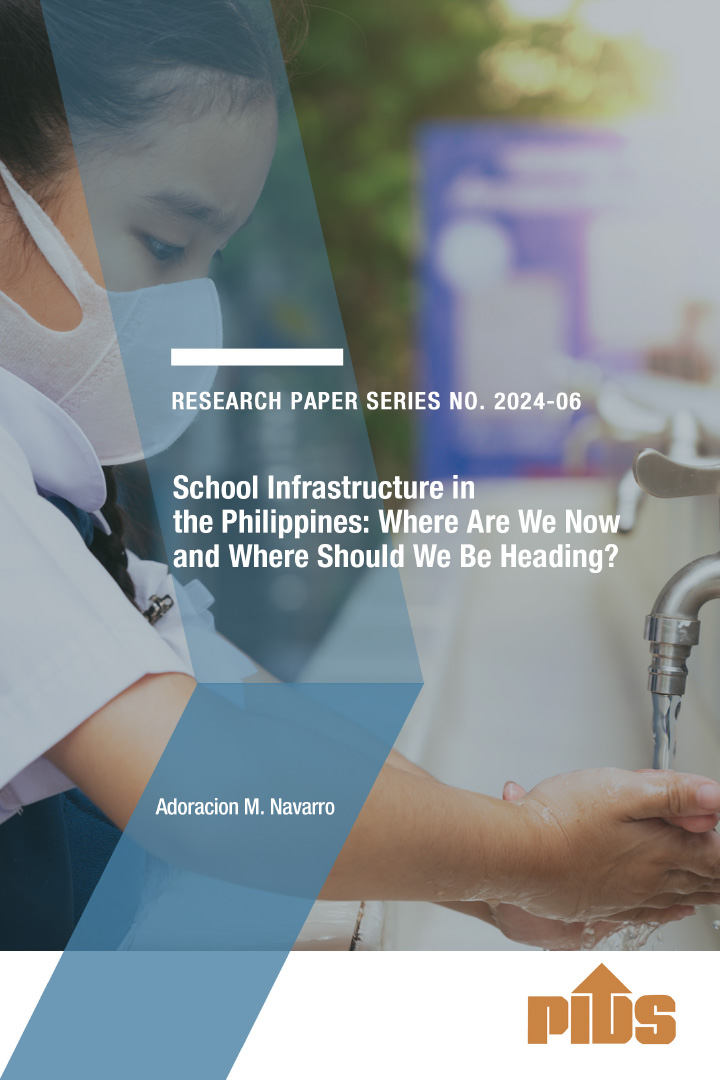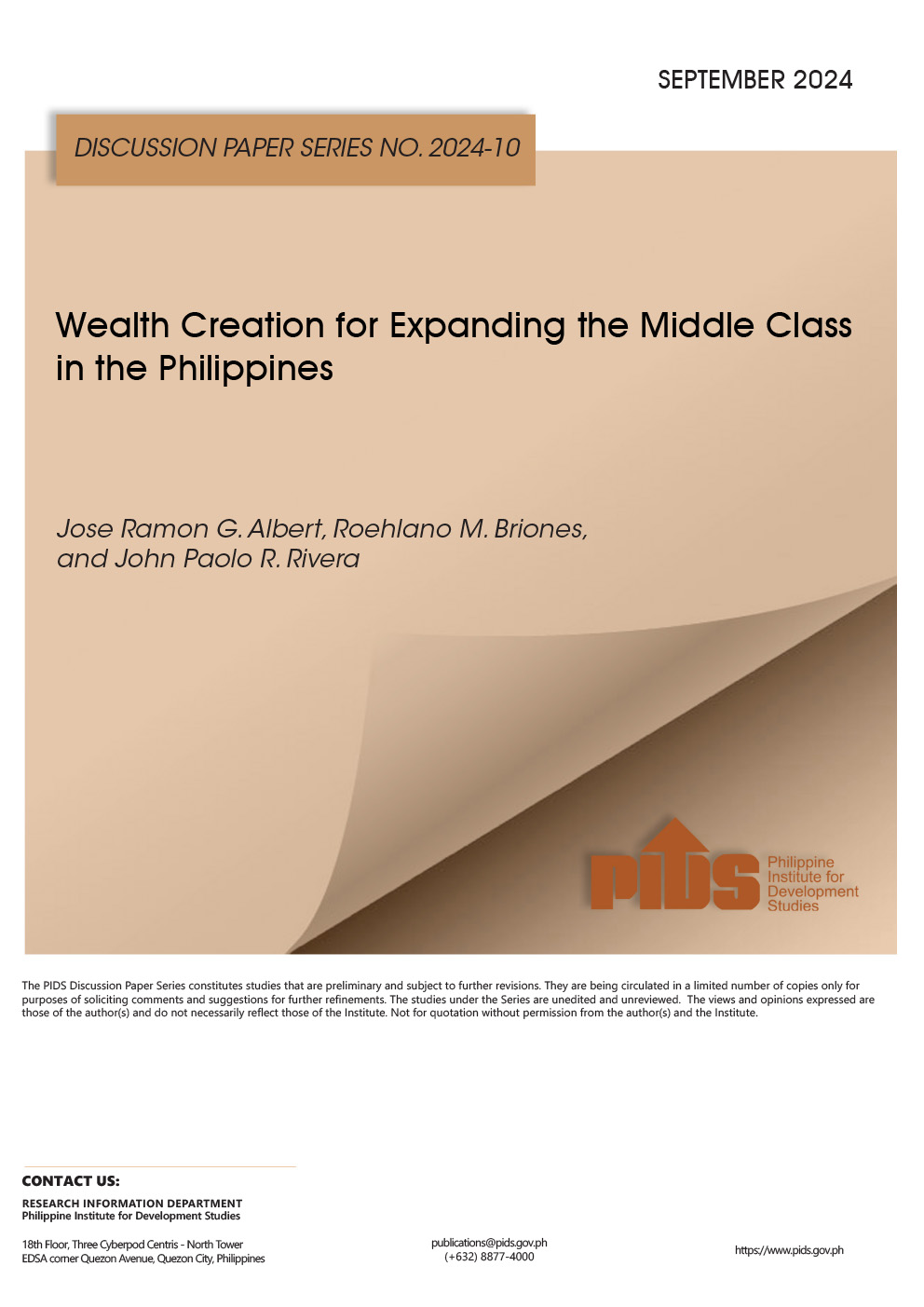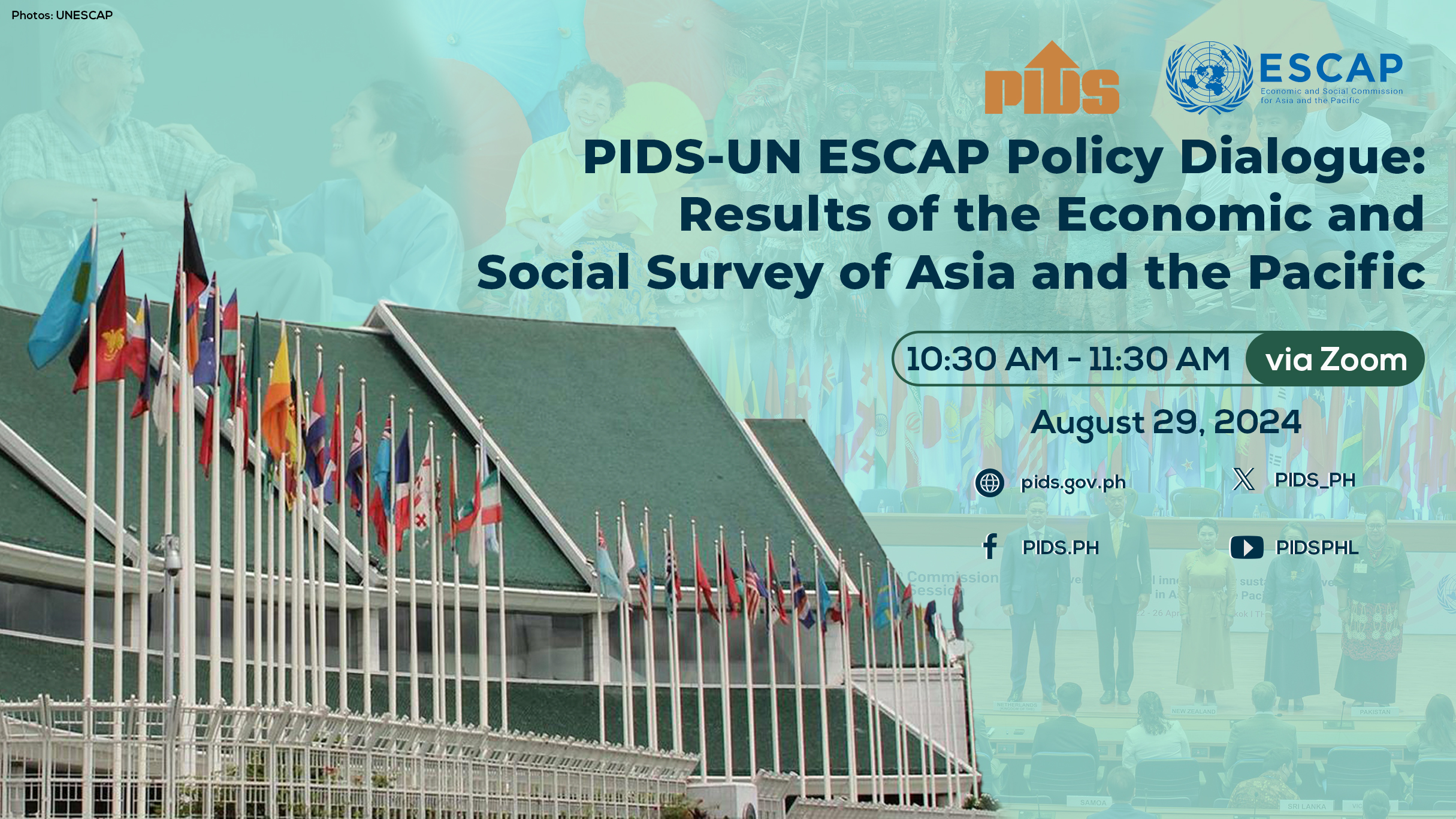The National Economic and Development Authority (NEDA) has stressed the need to focus on investments in physical infrastructure and human capital development to sustain inclusive economic growth.
Economic Planning Secretary Arsenio Balisacan told a public policy forum of the Philippine Institute of Development Studies (PIDS) on Monday that persistent infrastructure bottlenecks, particularly the delays in the completion of infrastructure and reconstruction projects as well as logistical bottlenecks, especially transport, threaten to hamper the pace of economic activity.
"Congestion in our roads, ports, airports, and seaports cost us billions of pesos per day and global rankings indicate that the quality of our infrastructure continues to lag behind our ASEAN counterparts,” said Balisacan.
He also pointed out the need for long-term solutions to the infrastructure gap remains critical and more compelling.
"While public infrastructure spending as a percent of gross domestic product (GDP) has been increasing in recent years, we also need to strengthen private sector participation in infrastructure development to keep up with rising demands in our fast-growing economy,” said Balisacan.
He noted that human capital development is another crucial component of inclusive growth that would set up the most enabling instrument to lift people from poverty through better education and health care services.
"The inability of the poor to benefit from growth can be traced to our underinvestment in human capital in the past. But in recent years, wider fiscal space accompanied by budget reforms, provided government with flexibility to increase human capital investments, particularly in education, health services, and social protection programs.”
Balisacan said that major development programs have already taken flight to address critical issues of human capital formation in the country, especially among the poor.
"The country’s expanded Conditional Cash Transfer (CCT) Program called 4Ps–which has grown in budget by more than 500% since 2010 and now covers more than 4 million beneficiary households from only 630,000 in 2009.”
"The 4Ps is already one of the largest in the world and has demonstrated early gains in improving outcomes for poor children, particularly in increasing enrolment and attendance in school. This initiative not only aims to combat intergenerational poverty but also targets to develop our human resources by widening access to basic education up to high school,” said Balisacan.
"The recently-instituted K to 12 basic education program has also jump-started comprehensive reforms in the education sector in the hope of improving the competitiveness and capabilities of our future workforce and abating the skills mismatch in the labor market.”
Balisacan said human capital formation will only lead to inclusivity growth if the poor can benefit from the recent economic growth in the form of having suitable and stable employment once they enter the work force.//
"We must continuously identify and implement educational reforms, enhance workforce competencies, align education and training programs to respond to industry requirements, provide training programs to upgrade skills that can reduce job-worker mismatches, and further equalize opportunities.”
Balisacan added that investments in technological innovation and research will prove to be crucial as these can be used as inputs into tangible and actionable policies for the country’s development.//
More investments in infra, human capital to sustain economic growth












